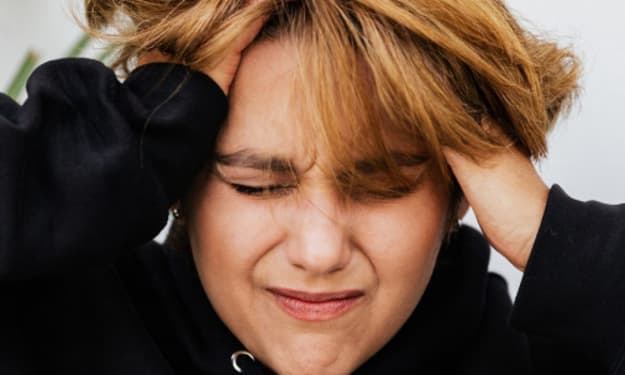Reduce insomnia: sleep hygiene guidelines
These tips can help you mitigate insomnia through sleep hygiene strategies.

It is estimated that between 20 and 48% of the Spanish population has had transient sleep problems at some time in their life, and it seems that this percentage is increasing. Bearing this in mind, it is likely that at some point in our lives we have had difficult nights in which we have had problems falling asleep.
When we present these difficulties we often call them "insomnia". And the best way to combat these types of problems is to follow some sleep hygiene guidelines . We will discuss both issues below.
What is insomnia?
Insomnia is that difficulty sleeping when we can't fall asleep , either because we can't start it, because we can't keep it up, or because of the presence of frequent nocturnal awakenings without being able to go back to sleep.
Consequently, our daytime life is considerably affected: our general performance decreases, we have attention and concentration difficulties, tiredness problems and changes in our mood and state of mind, among others.
How can we detect that we suffer from insomnia?
As these problems are subjective, it is relatively difficult to detect for sure that we may have insomnia. However, there are some parameters that we can take into account to assess the possibility that we have insomnia , and these are:
- The time it takes to fall asleep is more than 30 minutes.
- When the total time we fall asleep is less than 6 hours.
- Presence of 3 or more nocturnal awakenings, along with difficulty falling back asleep.
It is important that we know that, in addition to these criteria, there must also be our negative subjective assessment of the affectation of the physical and psychological state , since not all of us need the same hours to have a comfortable sleep.
What can we do?
There are a series of guidelines that are usually implemented as first measures when intervening in insomnia problems, and these guidelines are those of sleep hygiene. They have the objective of implementing in us a series of habits that favor the quality of our sleep, it is a way of teaching our mind and body that it should rest and how to do it to establish that routine again .
On the other hand, each person has different personal circumstances and it is necessary to adapt to them for the effectiveness of the therapy. So in a complementary way we will comment on the general changes that can be made to improve the quality of sleep:
1. Guidelines regarding our food, drinks and other substances
It is important that we avoid overeating at dinner, but neither do we stay hungry. In addition, it is recommended that our dinner be light and with an abundance of carbohydrates, since they are sleep facilitators.
On the other hand, it is also recommended that we restrict the intake of liquids during the hours close to going to bed and going to the bathroom and urinating before, so we will avoid getting up in the middle of the night. In this sense, it is also recommended that we do not get up to eat or drink something, since it could encourage us to wake up. The best thing would be to take a glass of water with us when we go to bed to avoid it.
With regard to other types of drinks, we should avoid drinking coffee after 4 in the afternoon , since it is a type of stimulating drink that can influence us to fall asleep, as well as caffeine, chocolate and soft drinks.
We should also avoid consuming alcohol and tobacco, since they are substances that can cause night awakenings.
2. Guidelines related to physical exercise
It is true that physical exercise helps us to be tired at night, making it easier to fall asleep and make it sound. However, we should not do it during the three hours before going to sleep, since we need a high level of activity to gradually decrease, and this takes time.
In this sense, it is important that the activities we do before bed are of low intensity and do not require high attention and concentration.
On the other hand, constant light is also known to affect our sleep. For this reason, we must restrict the use of technological devices such as mobile phones, computers or tablets before going to sleep.
3. Guidelines related to our environment
There are certain aspects of our environment that also influence our sleep. Thus, the bed where we sleep must be adequate, and the clothes we wear should not be scarce, excessive or bothersome.
It is also recommended that the light we use is not so intense, that the temperature is between 18 and 22 degrees and that the humidity is adequate.
On the other hand, it is recommended that the environment be quiet and without noise while we sleep , since noise makes it difficult for us to sleep.
4. Other important guidelines
In order to facilitate the regularity of our sleep, it is important that we go to bed at the same time every day regardless of how much we slept that night, as well as always getting up at the same time. This will make our body get used to those hours to sleep.
In addition, it is also important that we do not use the bed for activities other than sleeping .
If we don't fall asleep in 15 or 30 minutes, we can get up and do an activity that is not stimulating, such as reading a boring book until we feel sleepy again.






Comments
There are no comments for this story
Be the first to respond and start the conversation.